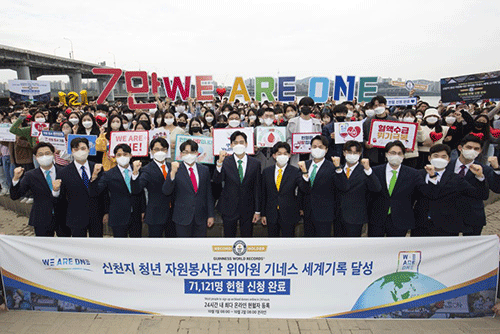Octogenarian Helena Black’s life was saved by a blood fusion last year after finding herself in hospital – an ordeal that stemmed from her collapsing after experiencing an episode of severe dizziness.
She was rushed to the Walvis Bay State Hospital, where she was notified by her doctor that she had anaemia.
Anaemia occurs due to a shortage of iron, creating a shortage of healthy red blood cells to carry blood to the organs.
“I would always feel dizzy after walking around the house and would always wonder what was causing this feeling. One day, I collapsed after beginning to experience an episode of severe dizziness,” she told Vital Signs.
While in hospital, Black received nearly four adult units of blood to aid her in recovering to her current normal state.
Her only daughter, Victoria ‘Vicky’ Kazondjandja (67), her grandchildren and great-grandchildren all are taking good care of her at their family home in the Kuisebmond suburb of Walvis Bay.
The life-saving blood transfusion has now encouraged Kazondjandja to also donate blood to anyone who might need it.
At her age, Kazondjandja can not be a donor, as the cut-off age is 65, but she is adamant to encourage her children to start taking this seriously.
“I mean, a total stranger donated blood, and it saved my mother’s life and their grandmother’s life – just like that,” she said.
Anaemia is a global public health problem, affecting both developing and developed countries, with major consequences for human health as well as social and economic development.
It occurs at all stages of the life cycle – but it is more prevalent in pregnant women and young children.
Black was fortunate to receive the much-needed blood, considering that Namibia has of late been experiencing critical blood shortages.
According to the Blood Transfusion Service of Namibia (NamBTS), it needs close to 3 200 units of blood monthly to meet the demand for patients in hospitals and medical centres across Namibia.
Blood is vital to life – and for many people, blood donors are their lifeline – and according to NamBTS spokesperson Titus Shivute, only 0.9% of the Namibian population currently donate blood – but one in three people will need blood in their lifetime.
He also told this publication there are currently close to 23 000 voluntary unpaid donors.
There is also no known substitute for blood, and it cannot be replicated due to its complexity.
Although lost blood volume can be temporarily replaced by synthetic solutions in trauma situations, these do not contain the necessary constituents to sustain the patient.
Donor blood can (and often does) mean the difference between life and death.
It is sometimes thought that the majority of donated blood helps those involved in accidents and emergencies.
However, most of the blood is used to treat mothers during pregnancy and birth complications, those suffering from cancer, patients undergoing surgery and those with other serious illnesses.
Meanwhile, Namibia on 14 June joined the global community to commemorate World Blood Donor Day.
The day focuses on thanking blood donors who save lives every day through their voluntary blood donations and use the platform to strongly encourage more people in Namibia to donate blood voluntarily and regularly.



